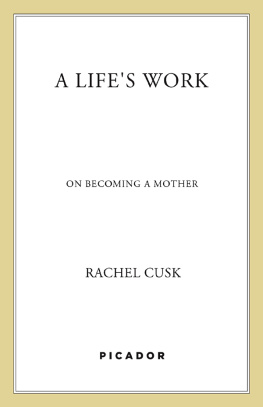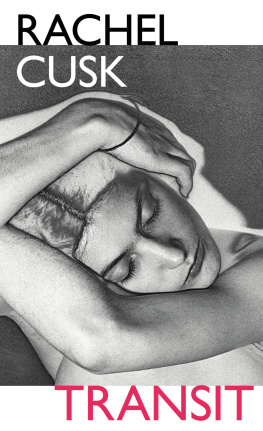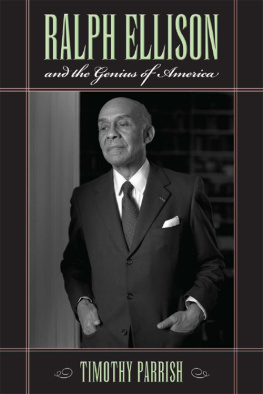Rachel Cusk - The Temporary
Here you can read online Rachel Cusk - The Temporary full text of the book (entire story) in english for free. Download pdf and epub, get meaning, cover and reviews about this ebook. year: 2013, publisher: Faber & Faber, genre: Prose. Description of the work, (preface) as well as reviews are available. Best literature library LitArk.com created for fans of good reading and offers a wide selection of genres:
Romance novel
Science fiction
Adventure
Detective
Science
History
Home and family
Prose
Art
Politics
Computer
Non-fiction
Religion
Business
Children
Humor
Choose a favorite category and find really read worthwhile books. Enjoy immersion in the world of imagination, feel the emotions of the characters or learn something new for yourself, make an fascinating discovery.
- Book:The Temporary
- Author:
- Publisher:Faber & Faber
- Genre:
- Year:2013
- Rating:5 / 5
- Favourites:Add to favourites
- Your mark:
- 100
- 1
- 2
- 3
- 4
- 5
The Temporary: summary, description and annotation
We offer to read an annotation, description, summary or preface (depends on what the author of the book "The Temporary" wrote himself). If you haven't found the necessary information about the book — write in the comments, we will try to find it.
The Temporary — read online for free the complete book (whole text) full work
Below is the text of the book, divided by pages. System saving the place of the last page read, allows you to conveniently read the book "The Temporary" online for free, without having to search again every time where you left off. Put a bookmark, and you can go to the page where you finished reading at any time.
Font size:
Interval:
Bookmark:
Rachel Cusk
The Temporary
For my brothers
My thanks go to Sarah Lutyens and Felicity Rubenstein for their diagnosis; to Georgia Garrett of Picador for her consultations; to my editor Katie Owen for her surgery; and to Josh Hillman for his excellent stitching
One
In a call-box on Fortune Green Road, where Hampstead ends and Kilburn begins, a telephone was ringing. Francine Snaith heard it, and being possessed of the conviction that destiny had it continually in mind at any moment to summon her, felt it was intended that she should answer.
It had begun to ring just as she reached the top of the road, its call clear above the humming, dusky swarm of the pavement, and its imperative grew louder as she made her way alongside the throbbing traffic towards it. Several people walked quickly past the call-box, shaking their heads as if angered by its unsupervision, but one or two had stopped and were watching it with interest. The compelling pulse was loud in her ears as she reached the scene, and she felt herself drawn by it out of the crowd. In the glances this action drew she saw the natural acceptance of her distinction, and the busy pavement seemed to part before her. She opened the door, releasing its clamour into the street.
Once alone inside the shrilling enclosure, Francine was wrapped in warm air oily with urine and cigarettes, the manifestations of an anxiety she had often witnessed as she walked to and from the bus stop but to date had never shared; for the grooves of her daily routine, though rigid, at least ensured her safe passage past the brutalized individuals always to be glimpsed here, desperately shoving scrabbled coins into the hungry slit while from their downturned mouths Francine could occasionally hear snatches of a dark bureaucracy: Just one night, Ill pay you back, But you said you sent the cheque, and, most often, What am I supposed to do? Her revulsion at these creatures was tempered by the safety of her distance from their misfortunes, and her confidence that the divide which separated them was fortified by sheer impossibility even permitted her to tend a small patch of pity for them. When she picked it up, the receiver was tepid and greasy with use.
Hello?
Oh yes, hello, said a mans voice, with an impatient sigh.
Can I help you?
Well, yes, love, said the man after a pause. As a matter of fact you can. Look to your left and youll see a red door.
Francine looked and was surprised to see it right there, as if it had just sauntered up and stood outside without her noticing. It was scarred with a peeling eczema of paint.
I see it, she said.
Well, go over and ring the bell, if you would. Tell the bloke who lives there its Mike for him.
Francine placed the receiver on the metal shelf beside the phone and left the call-box. The door of the house gave directly on to the pavement and necessitated only a few steps to reach the bell. She rang it three times and when nobody answered returned to the call-box.
Theres no answer, she said.
Oh. Must be broken, I suppose. Try shouting up at the window on the top floor.
What should I shout?
Terry, love. Shout Terry.
Francine left the call-box and returned to the front of the house. A small group of people had gathered murmuring on the pavement. Having gained the impression that the situation concealed little personal profit Francine had been considering the possibility of escape from it, but the presence of an audience imbued her with exigence.
Terry! she shouted. Terry!
Moments later she heard the pounding of footsteps and the window being opened above her. A fine snow of dry paint drifted down to her feet as the sash hit the top of the frame.
Look, he is in, said a woman nearby, pointing up.
A fat man with a dark beard put his head out.
What? he said.
Mikes on the phone for you, called up Francine.
Oh, not again! said the man, slapping his forehead. Tell him Im busy, will you?
He slammed the window shut and pounded off. A few seconds later the house began to shake with the sound of loud music.
He says hes busy, Francine dutifully relayed to Mike.
I dont believe it! said Mike. That bleeder owes me money! Three weeks Ive been after him. Tell him Ill be round go on, tell him, see how he likes that.
I cant, said Francine. Hes playing some very loud music.
Well, whats that got to do with anything? Chuck a brick through his window if he cant hear you. See how he likes that, added Mike firmly.
I dont think thats a very good idea. Why dont you write him a letter?
Who do you think I am? The bloody postman? I just want my money!
Ive really got to go, said Francine. Goodbye.
She put the phone down and left the call-box. Moments later, as she walked down the darkening street, she heard it ringing again behind her. She turned into Mill Lane just as the street lamps were switched on.
*
She had been on her way home through the premature dark of an overcast winter afternoon from the local park, where she had spent a chilling, unsatisfactory interlude during which the rare and strenuous exercise of solitude had failed to warm her. She had gone there with the intention of substantiating the illusion of being out, lest the seeds of the previous nights party should, in her absence, bear fruit in the form of a telephone call; but also to get clear in her mind by a detailed reconstruction of events from whom she might, reasonably or not, expect one. She had been disappointed by the park, for having decided to grace the art of contemplation with her indulgence in it, it had not occurred to her that the proper accoutrements for its execution would fail to present themselves. The infrequency of her excursions into nature had given her vague, generic assumptions concerning its appearance, and in her search for the verdant scenery of thought she had not prepared herself for the discovery that such places might have problems of their own. The park was revealed to be a barren island circumnavigated by fuming rivers of Saturday afternoon traffic, unpopulated save by a small stream of pedestrians passing through it on the way to somewhere else. Lodged awkwardly on a bench at its perimeter Francine was comforted at least by the thought, which she met like an overnight train arriving from the previous evenings events, that the world was neither so complicated nor so exclusive a place as she had imagined.
Sitting there she remembered the dark, glittering room an art gallery, she had been told whose floor, to her secret and continuing concern, had been thickly strewn with dry autumn leaves. They had covered her feet with a light, rustling crust and she had had to kick them away with unfaltering vigilance in deference to the high-heeled shoes she had gone out and bought specially at lunch-time. There had been paintings on the walls, their violent, mangled surfaces quiet in the shadows like undisturbed car accidents, and she and Julie had looked at one or two of them, just as a laugh because no one had spoken to them yet, even though the room was alive, palpable with the proximity of flesh and the flash of faces. It had seemed like ages that they stood there on their own. Julie had been temping at the gallery for almost a month, and she kept pointing out people she knew.
Why dont we go and talk to them? Francine had said impatiently.
Oh, wed better not.
We look stupid just standing here.
Look, Ill find someone in a minute.
While Julie had been craning her head around in search of an opportunity so obviously, Francine thought, that it was almost embarrassing a man with a bald head had suddenly come up and stood right in front of her. He was wearing an overcoat, even though they were indoors. To her surprise, he took her chin in his fingers and held it while he examined her face.
Font size:
Interval:
Bookmark:
Similar books «The Temporary»
Look at similar books to The Temporary. We have selected literature similar in name and meaning in the hope of providing readers with more options to find new, interesting, not yet read works.
Discussion, reviews of the book The Temporary and just readers' own opinions. Leave your comments, write what you think about the work, its meaning or the main characters. Specify what exactly you liked and what you didn't like, and why you think so.













